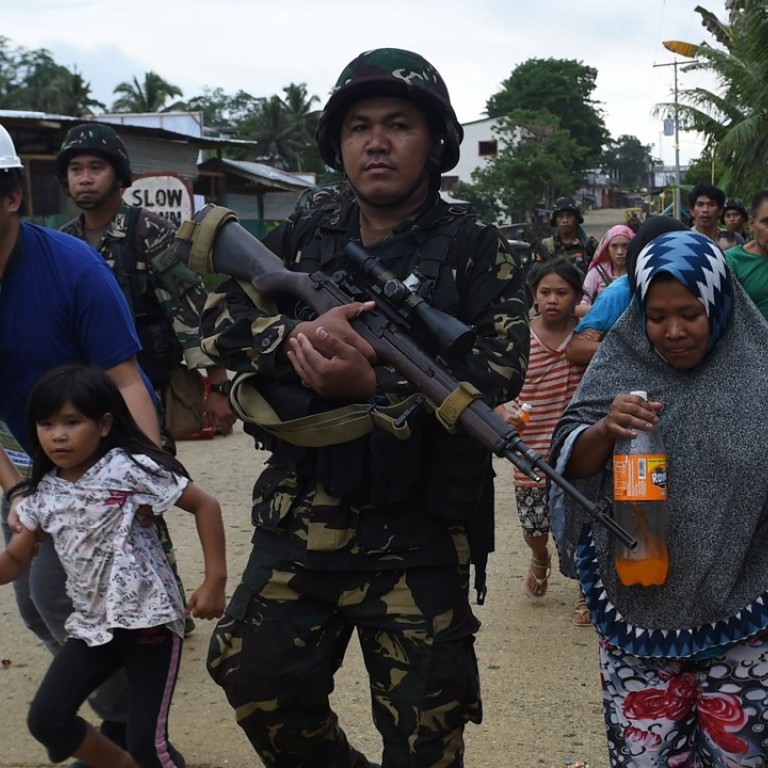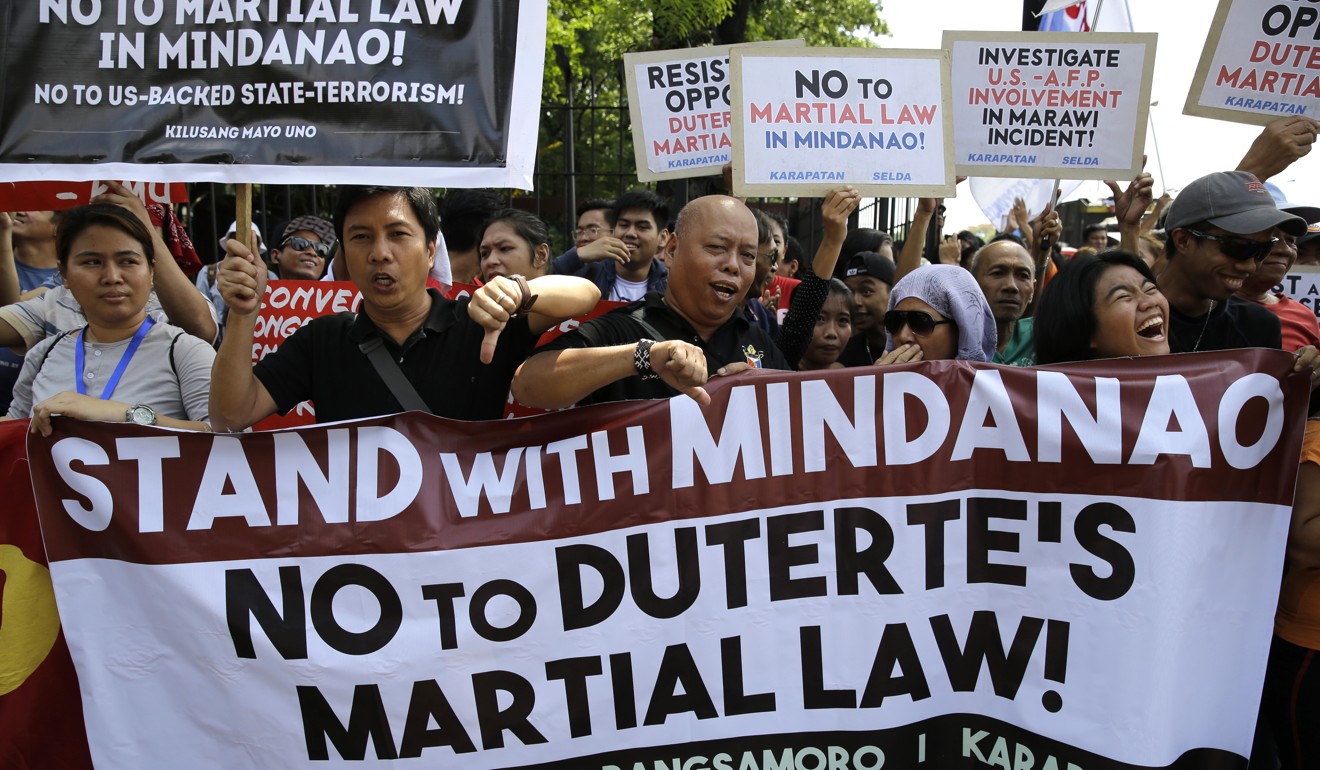
Martial law alone cannot solve problems in southern Philippines
President Rodrigo Duterte must tackle the decades-old neglect of Muslim-majority areas and bring all sides to the negotiating table

Muslim-majority southern provinces of the Catholic-dominated nation have for decades been neglected and mismanaged by Manila, to the point that poverty is rife and there is a strong sense of injustice. The rise of extremist groups seeking independence or self-rule has been a by-product, leading to decades of extremism, including kidnapping, murder and terrorism. To attain their goals, militants have reached out to like-minded Muslim extremists for support.
But while martial law can tackle emergencies, it is no way to bring about peace. Muslim leaders want greater autonomy and that can only be attained through negotiations. Diplomacy has repeatedly failed due to a lack of resolve by Manila and various militant groups, with rare exceptions. Duterte has to create the conditions for all sides to come to the table.

